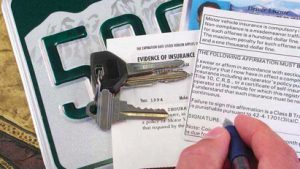 Arizona require drivers to have auto insurance — but how do you know if you’re getting the right type of policy for your needs?
Arizona require drivers to have auto insurance — but how do you know if you’re getting the right type of policy for your needs?
First, fulfill your state’s and lender’s minimum requirements. A call to your state’s insurance commissioner’s office or Matt Watson State Farm can get you started.
The next step is becoming familiar with non-required types of insurance and what each one covers, as well as what is meant by some commonly seen insurance terms.
Know these insurance terms:
- Bodily Injury Liability covers injuries, lost wages, pain and suffering, and other damage you might cause to other drivers, passengers, and/or pedestrians.
- Rental Reimbursement may pay for a rental vehicle if your car is not drivable after a crash.
- Collision may provide coverage for damage inflicted to your vehicle after a rollover or crash with another car or object. This coverage typically requires a deductible.
- Comprehensive provides coverage for damage to your vehicle after a non-vehicle or non-rollover incident, such as theft or weather damage. This coverage typically requires a deductible.
- Emergency Road Service may cover expenses related to a breakdown, including towing and locksmith services.
- Medical Payments and Personal Injury Protection may offer compensation for medical expenses, lost wages, and even funerals if you or other covered persons are injured in a vehicle-related crash.
- Property Damage Liability may cover damage you cause to another individual’s property while driving. This also covers court costs and legal expenses.
- Uninsured or Underinsured Motorist Coverage may provide reimbursement if you’re involved in a crash with a driver who doesn’t have sufficient liability insurance — or any at all.
Learn these basic terms:
- Premium: Payment you make to your insurance company for your policy.
- Deductible: The amount you pay before your insurance company may pay the rest, up to any policy limits that apply. Higher deductibles equal lower premiums; conversely, lower deductibles equal higher premiums.
- Covered Persons: Policies generally cover the policyholder, their spouse, other relatives living in the home, and individuals driving the policyholder’s vehicle with their permission.
Contact your local State Farm Agent, Matt Watson, to find out what is right for you.

